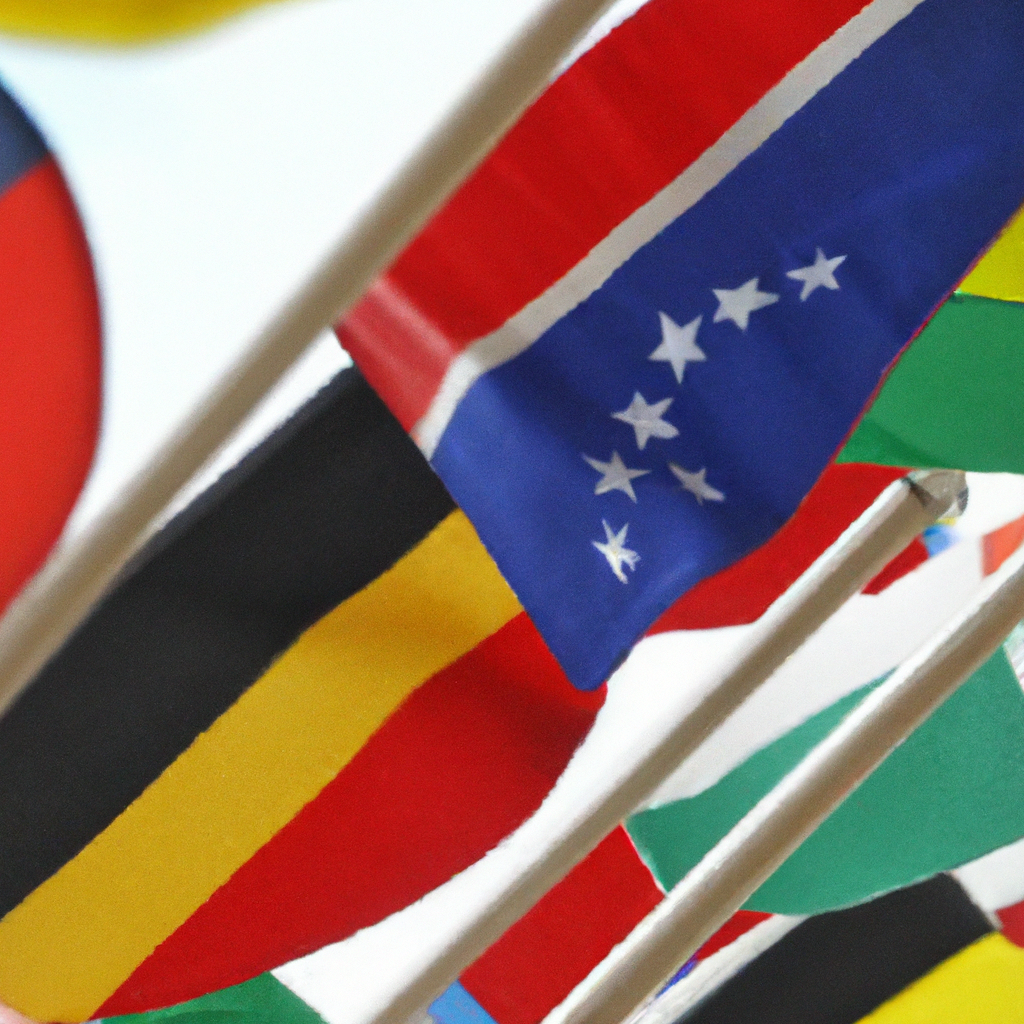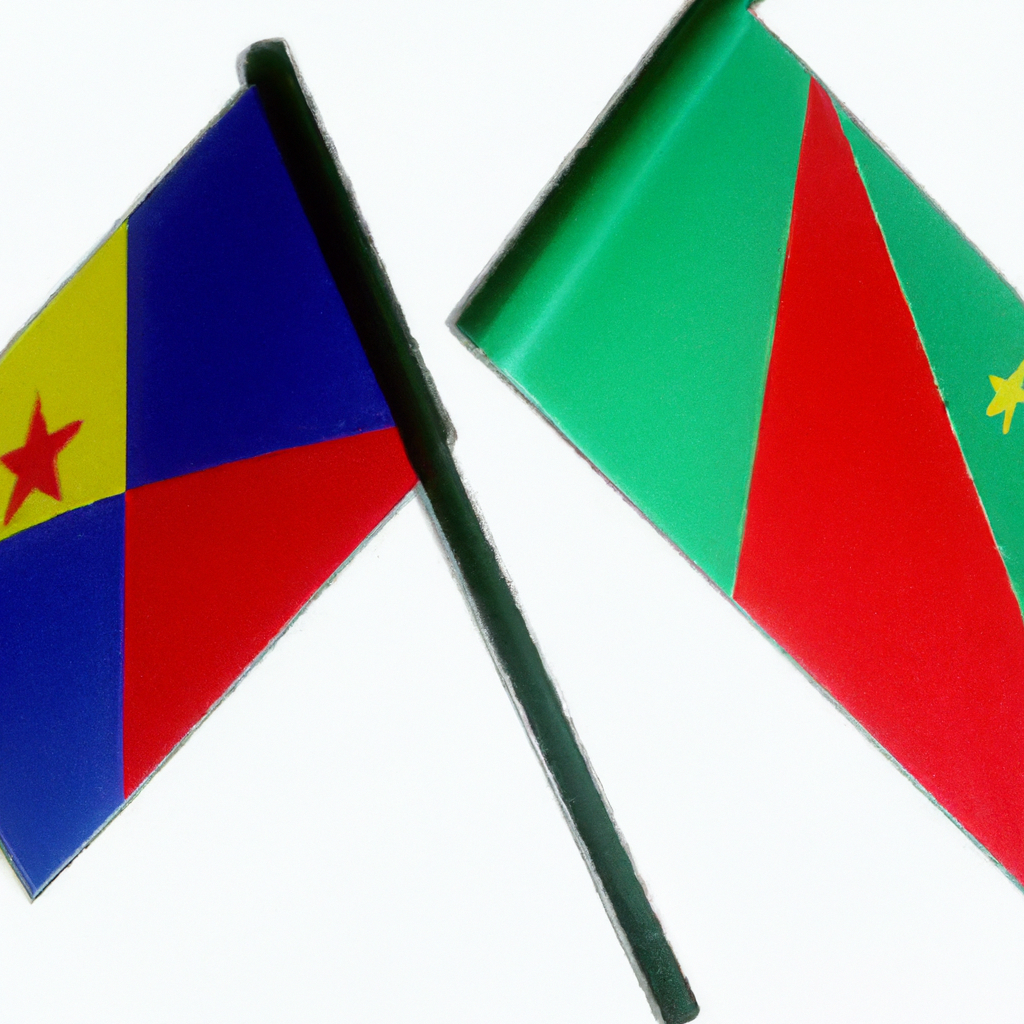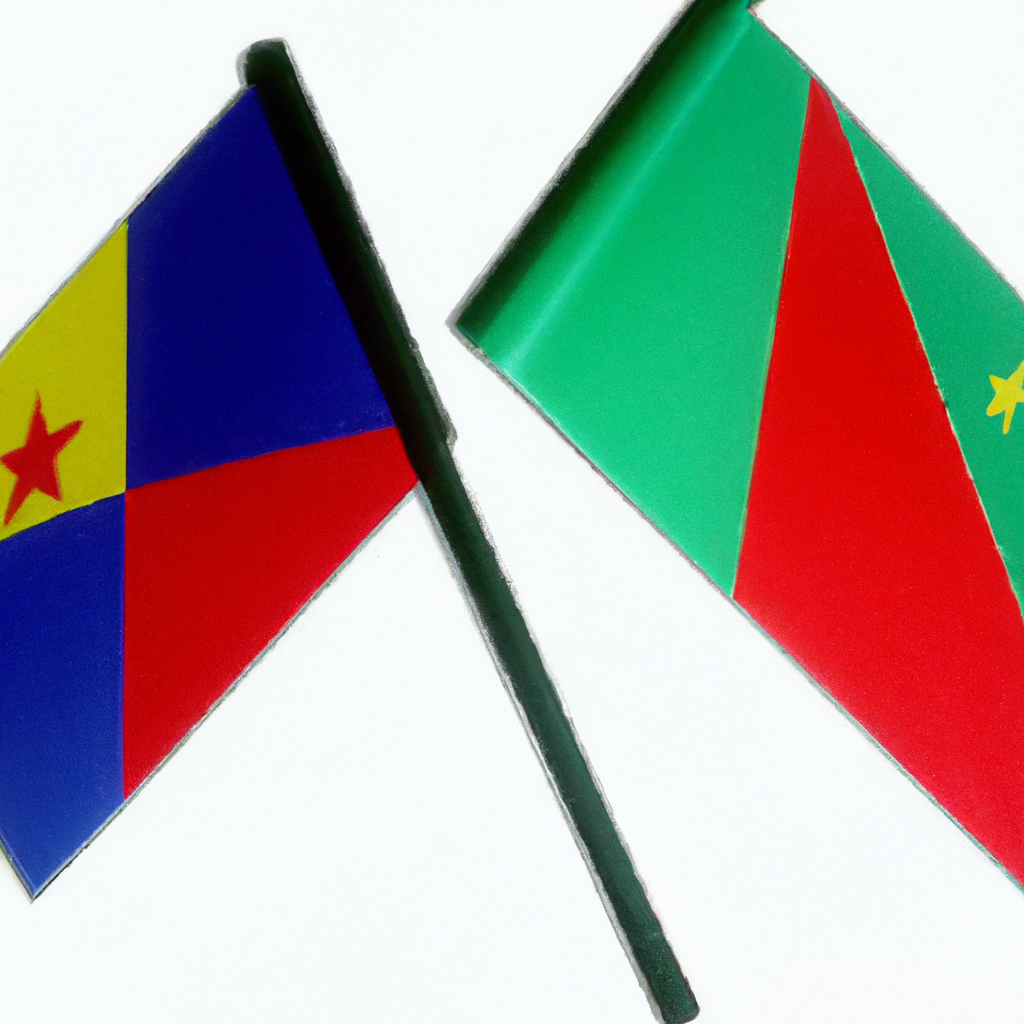Suriname, a small country nestled in the northeastern coast of South America, plays a crucial role in the Caribbean Community (CARICOM). Despite not being located in the Caribbean Sea, Suriname is recognized as a member of CARICOM, primarily due to its cultural, historical, and economic ties with the Caribbean islands. This unique position allows Suriname to actively participate in the region’s development, particularly in sectors like tourism. Suriname’s diverse natural landscapes, vibrant culture, and rich history make it an attractive destination for tourists seeking an authentic Caribbean experience. By leveraging its membership in CARICOM, Suriname can further enhance its tourism industry and strengthen ties with neighboring Caribbean nations.

Trade and Economic Integration
The CARICOM Single Market and Economy (CSME) is a significant initiative aimed at fostering trade and economic integration within the Caribbean Community. Suriname plays an active role in this regional economic alliance, which facilitates the free movement of goods, services, capital, and skilled labor across member states. As a member of CARICOM, Suriname benefits from reduced trade barriers and increased market access, leading to enhanced economic growth and development opportunities.
Suriname also actively engages in trade agreements with other countries and regions, further expanding its economic horizons. These agreements promote international trade, investment, and cooperation, providing various opportunities for Surinamese businesses to export their products and services to global markets. By being part of these trade agreements, Suriname can diversify its economy, attract foreign direct investment, and create employment opportunities for its citizens.
Additionally, Suriname offers attractive investment opportunities for both domestic and foreign investors. The country’s rich natural resources, including mineral deposits, timber, and agricultural products, create a favorable environment for investment in sectors such as mining, forestry, agriculture, and renewable energy. Suriname’s commitment to economic stability, sound macroeconomic policies, and investor-friendly regulations further enhances its appeal as an investment destination.
Political Engagement
Suriname actively participates in CARICOM meetings, contributing to decision-making processes and regional policy formulation. As a member state, Suriname has a voice in shaping the common agenda, which covers a wide range of areas including trade, economic cooperation, regional security, and social development. By actively engaging in these meetings, Suriname ensures that its perspectives and concerns are taken into consideration, reinforcing its position as an active participant in regional affairs.
Suriname has also taken up leadership roles within CARICOM, demonstrating its commitment to regional integration and cooperation. The country has held positions such as the Chair of CARICOM, providing an opportunity to represent the interests of the Caribbean region and advance common goals. Suriname’s leadership engagement within CARICOM further strengthens its ties with member states and allows for collaborative decision-making on critical issues affecting the Caribbean community.
Promoting democracy and protecting human rights are key priorities for Suriname. The country actively advocates for democratic principles, good governance, and respect for human rights within CARICOM and beyond. Suriname’s commitment to upholding these values contributes to the overall stability and prosperity of the region, as well as fostering a culture of inclusivity and equality.
Regional Security Cooperation
Suriname actively cooperates with other CARICOM member states in joint efforts against the illicit drug trade. The Caribbean region is susceptible to drug trafficking due to its geographical location, and Suriname recognizes the importance of regional collaboration to combat this issue effectively. Through information sharing, intelligence cooperation, and joint operations, Suriname and its CARICOM counterparts work together to disrupt drug trafficking networks and dismantle their operations.
Countering terrorism is another area of collaboration between Suriname and CARICOM member states. By sharing intelligence, conducting joint training exercises, and strengthening border security measures, Suriname contributes to regional efforts in preventing and combating terrorism. This cooperation is essential to safeguard the safety and security of the Caribbean region and its citizens.
Disaster management collaboration is vital for a region prone to natural disasters such as hurricanes, floods, and earthquakes. Suriname actively participates in regional disaster management initiatives and contributes to coordinated response efforts during times of crisis. By sharing resources, expertise, and best practices, Suriname and other CARICOM member states enhance their collective ability to mitigate the impact of natural disasters and support affected communities.
Transportation and Infrastructure Development
Suriname is actively involved in projects aimed at improving regional connectivity and transportation infrastructure within CARICOM. These projects seek to enhance connectivity between member states, facilitate the movement of goods and people, and promote economic integration. By investing in transportation infrastructure, such as roads, bridges, and ports, Suriname contributes to the overall development and integration of the Caribbean region.
Promotion of sustainable tourism is a priority for Suriname, given its rich natural and cultural attractions. Suriname actively collaborates with other CARICOM member states to develop sustainable tourism initiatives that preserve the environment, protect cultural heritage, and provide economic opportunities for local communities. Through regional tourism promotion campaigns and cooperation on sustainable tourism practices, Suriname contributes to the growth and sustainability of the tourism sector in the Caribbean.
Enhancement of air and sea links is crucial for facilitating trade, travel, and communication within CARICOM. Suriname recognizes the importance of efficient air and sea transport networks in supporting economic development and regional integration. By investing in the expansion and modernization of airports, seaports, and related infrastructure, Suriname enables smoother movement of goods, services, and people within the Caribbean region.

Energy and Sustainable Development
Suriname actively supports renewable energy initiatives to reduce dependence on fossil fuels and promote sustainable development within CARICOM. By harnessing its abundant natural resources, such as hydropower and solar energy, Suriname contributes to the region’s transition to a cleaner and more sustainable energy future. These renewable energy initiatives not only mitigate the adverse effects of climate change but also drive economic growth and create employment opportunities.
Collaboration on climate change adaptation is a priority for Suriname in its engagement with CARICOM. Suriname actively participates in regional initiatives aimed at building resilience to the impacts of climate change, such as rising sea levels, extreme weather events, and changing rainfall patterns. By sharing knowledge, best practices, and resources, Suriname and other CARICOM member states enhance their collective capacity to adapt and mitigate the effects of climate change.
Promotion of a green economy is a key focus area for Suriname. The country integrates sustainable practices into its economic policies and development strategies to ensure the efficient use of resources, minimize environmental impact, and promote social inclusivity. By adopting a green economy approach, Suriname contributes to the overall sustainability and resilience of the Caribbean region.
Social and Cultural Integration
Suriname actively promotes Caribbean identity and cultural integration within CARICOM. The country recognizes the importance of preserving and celebrating Caribbean culture and heritage, which form the foundation of a shared regional identity. Suriname actively participates in cultural exchanges, festivals, and events organized by CARICOM, fostering a sense of belonging and solidarity among member states.
Youth empowerment programs are a priority for Suriname’s social and cultural engagement within CARICOM. The country recognizes the potential of young people in shaping the future of the Caribbean region and actively supports initiatives that promote their personal and professional development. Through youth leadership programs, skills training, and entrepreneurship support, Suriname equips its youth with the tools and opportunities to contribute meaningfully to their communities and the wider Caribbean.
Cultural exchanges and festivals are essential for promoting mutual understanding, appreciation, and respect among CARICOM member states. Suriname actively participates in these cultural exchanges, facilitating the sharing of artistic, musical, and culinary traditions that reflect the diversity and richness of the Caribbean culture. By engaging in cultural exchanges and festivals, Suriname contributes to the preservation and promotion of the Caribbean’s unique cultural heritage.
Healthcare Cooperation
Suriname actively collaborates with other CARICOM member states in disease control efforts. The country recognizes the importance of regional coordination in addressing health challenges such as the Zika virus, dengue fever, and other infectious diseases. By sharing information, expertise, and resources, Suriname and its CARICOM counterparts enhance their collective capacity to prevent, detect, and respond to public health threats.
Sharing of healthcare resources is a crucial aspect of healthcare cooperation within CARICOM. Suriname actively participates in initiatives aimed at strengthening healthcare systems and improving access to quality healthcare services. By sharing medical professionals, equipment, and expertise, Suriname and other CARICOM member states ensure that healthcare services are available and accessible to all citizens, contributing to improved health outcomes across the region.
Joint efforts in research and development are vital for advancing healthcare solutions and addressing regional health challenges. Suriname engages in collaborative research projects, clinical trials, and knowledge exchange programs with other CARICOM member states. By pooling resources and expertise, Suriname contributes to the development of innovative healthcare solutions and the improvement of healthcare delivery in the Caribbean.
Education and Capacity Building
Suriname actively participates in student exchange programs within CARICOM, providing opportunities for students to study and gain valuable experiences in different member states. These exchange programs promote cultural understanding, academic excellence, and networking among Caribbean youth. By supporting student exchange initiatives, Suriname contributes to the development of a highly skilled and internationally competitive workforce in the region.
Skills development initiatives are a priority for Suriname’s engagement in CARICOM. The country recognizes the importance of equipping its citizens with the necessary skills and competencies to thrive in a globalized economy. Suriname actively participates in skills training programs, vocational education initiatives, and capacity-building workshops, providing its citizens with opportunities to acquire valuable skills and enhance their employability.
Supporting regional education institutions is a key focus area for Suriname. The country actively collaborates with CARICOM member states in enhancing the capacity and quality of education institutions in the Caribbean. Through partnerships, knowledge sharing, and resource mobilization, Suriname contributes to the development of robust education systems that empower individuals and drive socioeconomic progress in the region.
Environmental Conservation
Suriname actively contributes to the protection of biodiversity within CARICOM. The country boasts diverse ecosystems, including pristine rainforests, savannas, and coastal mangroves, which harbor a wide range of plant and animal species. Suriname actively engages in regional initiatives aimed at conserving and sustainable managing these natural resources, ensuring their long-term viability and the preservation of the Caribbean’s unique biodiversity.
Promotion of sustainable land use practices is a key priority for Suriname’s environmental conservation efforts within CARICOM. The country recognizes that responsible land use and land management are essential for preserving ecosystems, preventing deforestation, and promoting sustainable agriculture. Suriname actively supports initiatives that promote sustainable land practices, including reforestation, soil conservation, and sustainable farming techniques.
Marine resources preservation is a significant focus area for Suriname’s environmental engagement within CARICOM. Suriname’s coastal waters are abundant in marine biodiversity, including coral reefs, mangroves, and fish stocks. The country actively supports measures to protect and sustainably manage these marine resources, including marine protected areas, sustainable fishing practices, and pollution control measures. By conserving marine resources, Suriname contributes to the long-term viability and resilience of the Caribbean’s coastal ecosystems.
Digital Transformation and Innovation
Suriname actively invests in ICT infrastructure development to drive digital transformation within CARICOM. The country recognizes the importance of modernizing its information and communication technology systems to enhance efficiency, connectivity, and competitiveness. By expanding broadband connectivity, upgrading digital infrastructure, and promoting digital literacy, Suriname contributes to the overall digital transformation of the Caribbean region.
E-government initiatives are a priority for Suriname’s digital engagement within CARICOM. The country recognizes the potential of digital technologies to improve public service delivery, promote transparency, and enhance governance. Suriname actively implements e-government solutions, such as online portals for citizen services, digital platforms for government-citizen interaction, and electronic document management systems, making government services more accessible and efficient.
Promotion of start-up ecosystems is crucial for fostering innovation and entrepreneurship within CARICOM. Suriname actively supports the growth of start-up businesses through various initiatives, including incubation programs, access to funding, and mentorship support. By promoting a vibrant start-up ecosystem, Suriname contributes to the development of a dynamic and innovative private sector in the Caribbean, driving economic growth and job creation.
